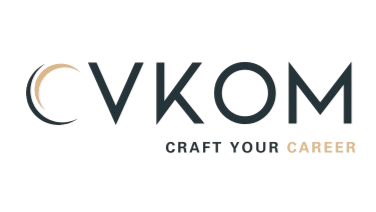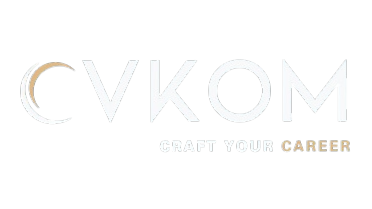Land Your Next Role: Navigate Career Transitions
- Explain Your Transition: Briefly and positively explain your career change.
- Highlight Transferable Skills: Focus on skills that are valuable in your new field.
- Show Your Commitment: Demonstrate your dedication to your new career path.
CVKOM helps you craft a cover letter that showcases your adaptability and value.
Visit CVKOM today and start your job search!
How to
Explain Career Transitions in a Cover Letter
Career transitions can be an asset
rather than a challenge when presented effectively in your cover letter.
Employers are looking for candidates who bring transferable skills,
adaptability, and a fresh perspective. Explaining your career transition in a positive
and confident manner can make a compelling case for why you are the perfect fit
for the role. At CVKOM, we help job seekers craft cover letters that
turn career changes into strengths. Here’s how to explain career transitions in
a cover letter.
1.
Start with a Strong Introduction
Your introduction should immediately
address your enthusiasm for the role and your unique perspective as someone
transitioning into the field. Keep the focus on your excitement and
transferable skills.
Example:
"I am excited to apply for the [Job Title] position at [Company Name].
With a background in [Previous Industry] and a passion for [New Industry], I
bring a unique blend of skills and fresh perspective that aligns with your
team’s goals."
2.
Explain the Reason for Your Transition
Provide a concise and positive explanation for your career change. Focus on what inspired the transition and
how it aligns with your professional goals.
Tips:
- Avoid negative reasons for leaving your previous field.
- Highlight what excites you about the new industry.
Example:
"After several years in [Previous Industry], I discovered a passion for
[New Industry] through [specific experience or realization]. This led me to
pursue [relevant training, certification, or project], which has equipped me
with the skills to excel in this new field."
3.
Highlight Transferable Skills
Identify skills from your previous
career that apply to the new role. Emphasize how these skills will help you
succeed and add value to the employer.
Examples of Transferable Skills:
- Communication and teamwork
- Problem-solving and critical thinking
- Leadership and project management
- Customer service and relationship building
Example:
"In my previous role as a Project Manager, I honed my skills in
organizing cross-functional teams, meeting tight deadlines, and managing
budgets. These skills are directly applicable to [New Role] and will enable me
to contribute effectively to your team."
4.
Share Relevant Achievements
Even if your achievements are from adifferent field, show how they demonstrate your ability to succeed. Use
specific examples to highlight your capability and adaptability.
Example:
"As a Sales Manager, I consistently exceeded targets, increasing
revenue by 25% year-over-year. This success required strategic planning and
relationship management—skills that I am confident will help me thrive in [New
Role]."
5.
Showcase Your Commitment to the New Career
Demonstrate your dedication to the
new industry by highlighting relevant training, certifications, or personal
projects. This reassures the employer that you’re serious about your
transition.
Example:
"To ensure my success in [New Industry], I completed [Certification or
Training] and actively engaged in [related projects, volunteer work, or
networking]. These experiences have equipped me with a strong foundation in
[specific skill or knowledge]."
6.
Align Your Goals with the Company’s Mission
Connect your career transition with the company’s mission or values. Show how your unique background can help them
achieve their objectives.
Example:
"Your company’s focus on [specific value or project] resonates deeply
with me. My diverse background in [Previous Industry] and newly acquired skills
in [New Industry] position me to contribute meaningfully to your team."
7.
Keep the Focus on the Employer’s Needs
While explaining your transition is
important, keep the focus on what you can offer to the company. Highlight how
your unique perspective and skills will benefit them.
Example:
"My ability to adapt quickly and apply creative problem-solving makes
me an asset to your team, especially in addressing [specific challenge or
opportunity the company is facing]."
8.
End with Enthusiasm
Example:
"Thank you for considering my application. I am eager to bring my
skills and fresh perspective to [Company Name] and contribute to your team’s
success. I look forward to the opportunity to discuss my qualifications
further."
Example
of a Cover Letter Explaining Career Transition
Dear [Hiring Manager’s Name],
I am thrilled to apply for the
Marketing Coordinator position at [Company Name]. After several successful
years in project management, I discovered my passion for digital marketing
while leading a cross-departmental branding initiative. This experience ignited
my interest in creating impactful campaigns and connecting with audiences on a
deeper level.
In my previous role as a Project
Manager at [Previous Company], I developed skills in team leadership, strategic
planning, and stakeholder communication—skills that are directly transferable
to marketing. For example, I led a rebranding project that increased customer
engagement by 30%, demonstrating my ability to manage complex initiatives and
deliver measurable results.
To ensure my readiness for this
career transition, I completed a certification in Digital Marketing, focusing
on SEO, content strategy, and analytics. Additionally, I launched a personal
blog, where I have grown an audience of over 5,000 monthly readers through
targeted content and social media campaigns.
What excites me most about [Company
Name] is your commitment to innovation and storytelling. I am eager to
contribute my unique perspective and proven skills to your team, helping you
drive engagement and achieve your marketing goals.
Thank you for considering my
application. I look forward to the opportunity to discuss how my background and
enthusiasm for marketing align with the needs of your team. Please feel free to
contact me at [phone number] or [email address].
Sincerely,
[Your Name]
Common
Mistakes to Avoid
- Being Defensive:
Focus on the positive aspects of your transition rather than justifying
why you left your previous career.
- Overloading with Details: Provide enough context to explain your transition but
keep the focus on how you’ll excel in the new role.
- Ignoring Transferable Skills: Highlight skills that are relevant to the new industry
to demonstrate your readiness.
- Lacking Enthusiasm:
Show genuine excitement for the new role and industry.
How
CVKOM Helps You Explain Career Transitions
At CVKOM, we offer resources
to help you craft compelling cover letters that address career transitions:
- Customizable Templates: Tailored formats for transitioning professionals.
- AI-Powered Suggestions: Get personalized advice on highlighting transferable
skills.
- Proofreading Assistance: Ensure your cover letter is polished and professional.
Conclusion
Explaining a career transition in a
cover letter is an opportunity to showcase your adaptability, transferable
skills, and enthusiasm for a new path. By framing your transition positively
and aligning your experiences with the job requirements, you can create a
compelling narrative that resonates with employers. At CVKOM, we’re here
to help you craft standout cover letters that turn your career change into a
strength. Start building yours today!






